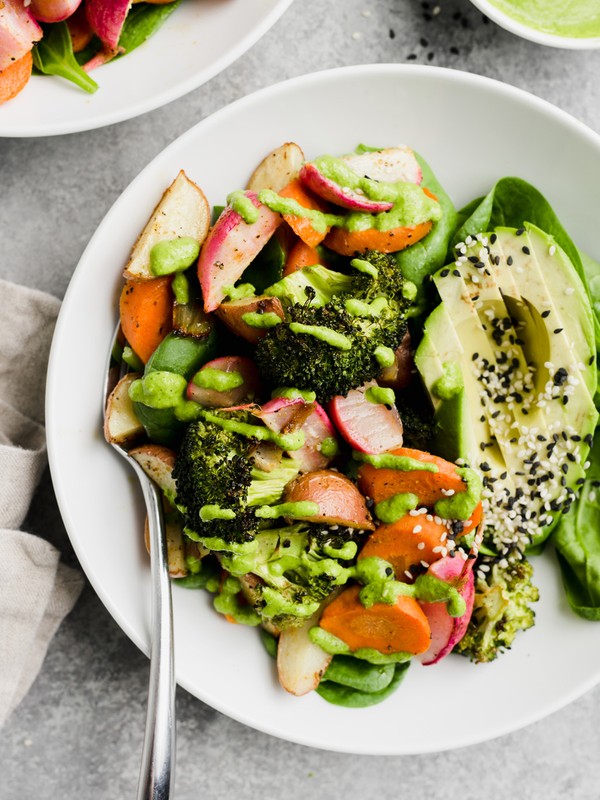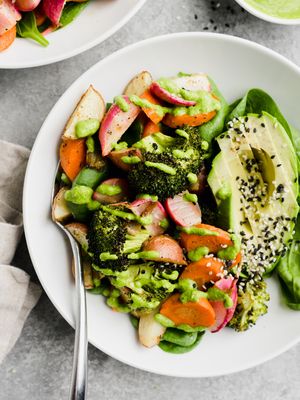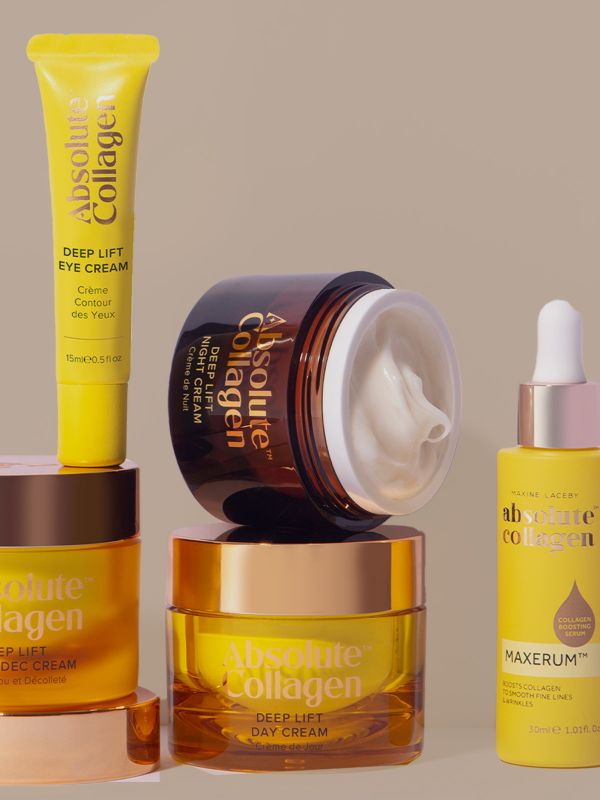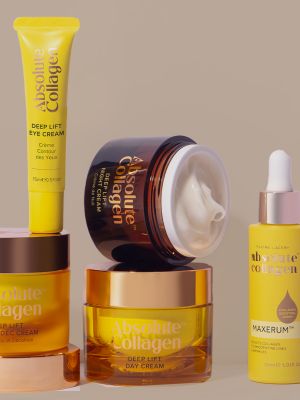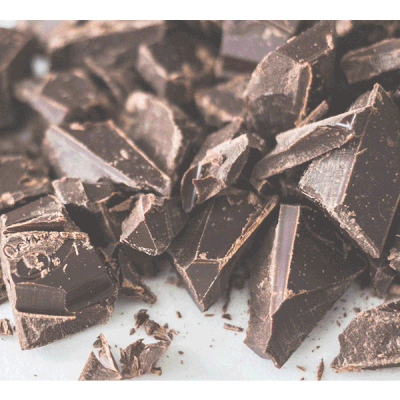
7 ‘Health’ Foods A Nutritionist Wants You To Stop Eating
MYTH: Granola & Acai Bowls Makes For A Nutritious Breakfast
TRUTH: Don’t be fooled by the notion that granola and cereal bars are your healthiest choice when it comes to breakfast. Just because you add fruit and yoghurt to your granola, doesn’t mean it’s any better than other options available. In fact, more often than not, granola and cereal bars are both incredibly high in added sugars, so always check the label before you buy. As for acai bowls, they may be made from nutritious ingredients but they’re very dense in calories as are often drizzled with honey or sugar. I always recommend eating your fruit in its whole, natural state instead, or choosing a protein-rich breakfast with eggs.
MYTH: Juices Are A Good Way Of Upping Your Vitamin Intake
TRUTH: Juicing is one of my biggest bugbears as so many people see it as a healthy way to up their vitamin intake. However, the vitamin, mineral, antioxidant and fibre content of whole fruits is significantly decreased by juicing. It’s far better to eat your fruits than to drink them – that’s my motto, always. I also loathe juice fasts; these just strip away muscle at the most alarming rate and rob you of your metabolism. It’s important to make sure you’re having adequate protein and balancing out your macronutrients (nutritional compounds required by the body in large) so steer clear of drinking juices regularly and taking part in juicing diets.
MYTH: Honey Is Natural, So Therefore It Contains Less Sugars
TRUTH: Yes, honey may be natural but this doesn’t make it any healthier than the white stuff. Sugar is sugar – and nutrition-wise, agave, honey and maple syrup are no better than traditional sugar. In fact, agave could be even worse for your system than table sugar because, unlike other sources that have a more even ratio of fructose and glucose, agave is 90% fructose. For this reason, I’d suggest avoiding it when you can. Instead look to options like date syrup or fruit puree – but still only have small amounts.
MYTH: Coconut Oil Is A Healthy Fat
TRUTH: Recently hailed as the ‘healthiest choice’ when it comes to fats, coconut oil is becoming more and more popular in the kitchen. However, you should bear in mind that coconut oil is still high in saturated fat and it is advised to lean away from these kinds of fats and towards the unsaturated variety instead. Think olive oil, rapeseed oil and sunflower oil, which all support our heart health and provide energy, while also strengthening the immune system, too.
MYTH: Occasional Red Wine Boosts Overall Health
TRUTH: While we love to think that red wine is good for us because of its polyphenol and antioxidant content, there are healthier ways to get these important disease-fighting chemicals into our diet. For example, one and half apples has the same polyphenol content as 175mls of wine. I’m not saying ditch the vino for good, but if you’re someone that is trying to cut back or tone up, steering clear of wine (and any sugary alcohol for that matter) is key to yielding proper results and feeling healthier overall.
MYTH: Cocoa Nibs & Dark Chocolate Are Healthier Than Milk Options
TRUTH: Barely a day goes by without a new scientific study promoting the benefits of eating dark chocolate every day. It might be good for your health to some extent, and your blood pressure may thank you in the long-term, but they won’t help any weight loss goals you may have. Cocoa nibs are often dubbed as being full of ‘goodness,’ but don’t be fooled: they’re often extremely calorific. So ‘good’ are the calories in the raw-food trend that we’ve seen a massive increase in clients who are following these diets and are now what I call ‘organically overweight’.
MYTH: Fresh Foods Are More Nutritious Than Tinned Food
TRUTH: For my final tip, I’m spinning this one round, as this is more what you shouldn’t avoid day-to-day. Tinned or frozen fruits and vegetables are often thought to be less nutritious than their fresh alternatives but in reality, they are just as good, and sometimes even better! This is because the process of canning and freezing preserves most of your food’s nutrients and antioxidants, so actually they’re a great source of important vitamins and minerals. Just be mindful to choose tinned fruit that is packaged in its own juice, rather than sugary syrup.
DISCLAIMER: We endeavour to always credit the correct original source of every image we use. If you think a credit may be incorrect, please contact us at info@sheerluxe.com.
